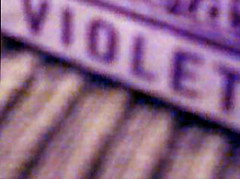Rebeck, Theresa. Dir. Judith Ivey. Bad Dates. Laguna Playhouse. 9/22/05.
Bad Dates at the Laguna Playhouse resembles several of the other things I've been reading/watching recently. It has a lot in common with Sex in the City or In Her Shoes. That doesn't however, necessarily disqualify it as good theater. It was extremely entertaining, and as such probably fulfilled its main goal, which was I'm sure to sell tickets and amuse subscribers.
Beth Broderick, most famous as Aunt Zelda on Sabrina, the Teenage Witch, performed this one woman play extremely well. She maintained her pace and energy and held the audience's interest for an hour-and-a-half monologue in which she was more or less just telling stories straight to the audience. Her skillful manipulation of several elaborate costume changes without revealing anything to the audience earned her a great deal of applause mid-scene. While the beginning of the play was a little awkward and audience members weren't quite sure how to behave, once she got going she brought the entire theater along for the ride. It was quite amusing that at the beginning of the play, the audience seemed to want to be more participatory, almost as if it were as stand up act or a rally. They seemed to want to applaud and shout 'right on, sister' after every beat, and the play didn't seem necessarily written for that kind of interaction but it's fascinating that the impluse arose. It has something to do with the direct address of the play to the audience, as if it were just two friends having a conversation rather than an actress performing a script to a silent audience.
The LA Times Review compliments author Theresa Rebeck's wit and facility with words, but criticizes the failure to achieve a deeper meaning. I suspect, however, that "the myriad differences between women and men, and the things they want from life" are less important to the play than the reviewer implies. It seems to be a play about women, not so much about men or about the interactions between them. It creates the dynamic of female friendship between performer and audience. It performs a normative femininity as a cross between self-sufficiency and haphazardness. While reviewer Daryl H. Miller calls the character of Haley Walker a "ditz" and a "floozy," and perhaps he's(she's??) right that she seems more of a charicature than a realistic character and she gets caught up in fairly ridiculous circumstances, he misses that the extremity of the situation and character are part of the point. It's fun that she's so over the top, and that rather than the deeper meaning is what matters about the performance.
Not that I can't talk about deeper meanings. First of all, there's the shoes. The set for Bad Dates is Haley's apartment bedroom, completely taken over by pairs of shoes. They're in boxes, on racks, under the bed - everywhere. Rebeck seems to be following in the footsteps of the rest of the chick lit genre that requires expensive footwear as the indulgent luxury of an everywoman. Why is this? Where does the footwear fetish come from, and why is it the primary hallmark of contemporary femininity. Rebeck draws attention to this in the first few minutes of the play by both having Haley claim that the shoes are not a fetish and allowing her to admit that most of the shoes hurt too much to wear. She dramatizes the effective hobbling, foot-binding aspects of a high heels, which every woman knows and far too many fail to admit. This revision of the contemporary mythology around beautiful shoes is probably part of what makes the beginning of the play so jarring, but it's an interesting way to set the tone for a play that then indulges in all of the fluffy femininity that that those inital assertions undermine.
My favorite aspect of the play was its references to Mildred Pierce, a 1945 noir women's movie starring Joan Crawford as a long-suffering woman striving to protect her evil and spoiled daughter. Rebeck openly references the plot similarities between the ridiculous circumstances of the film and the equally extreme events in Haley Walker's life, creating resonances between the two texts while simultaneously undermining them (presumably, Walker's daughter is not evil and thus the circumstantial similarities are irrelevant). Being a modern women's story, Bad Dates' references to its 1940s counterpart serve as a form of validation tying together an easily-dismissed genre (chick flicks, chick lit). The intertextuality gives Rebeck's script more strength and depth, more claim to a wider discussion of feminitity and women's roles in society, than it might have had without these references.
My 2025 in Review
-
Hi Friends! Happy Holidays! Here is my 2025 rundown.
Another year of being a full time playwright! It's been about 2 and a half
years now. I feel li...
4 weeks ago

0 comments:
Post a Comment